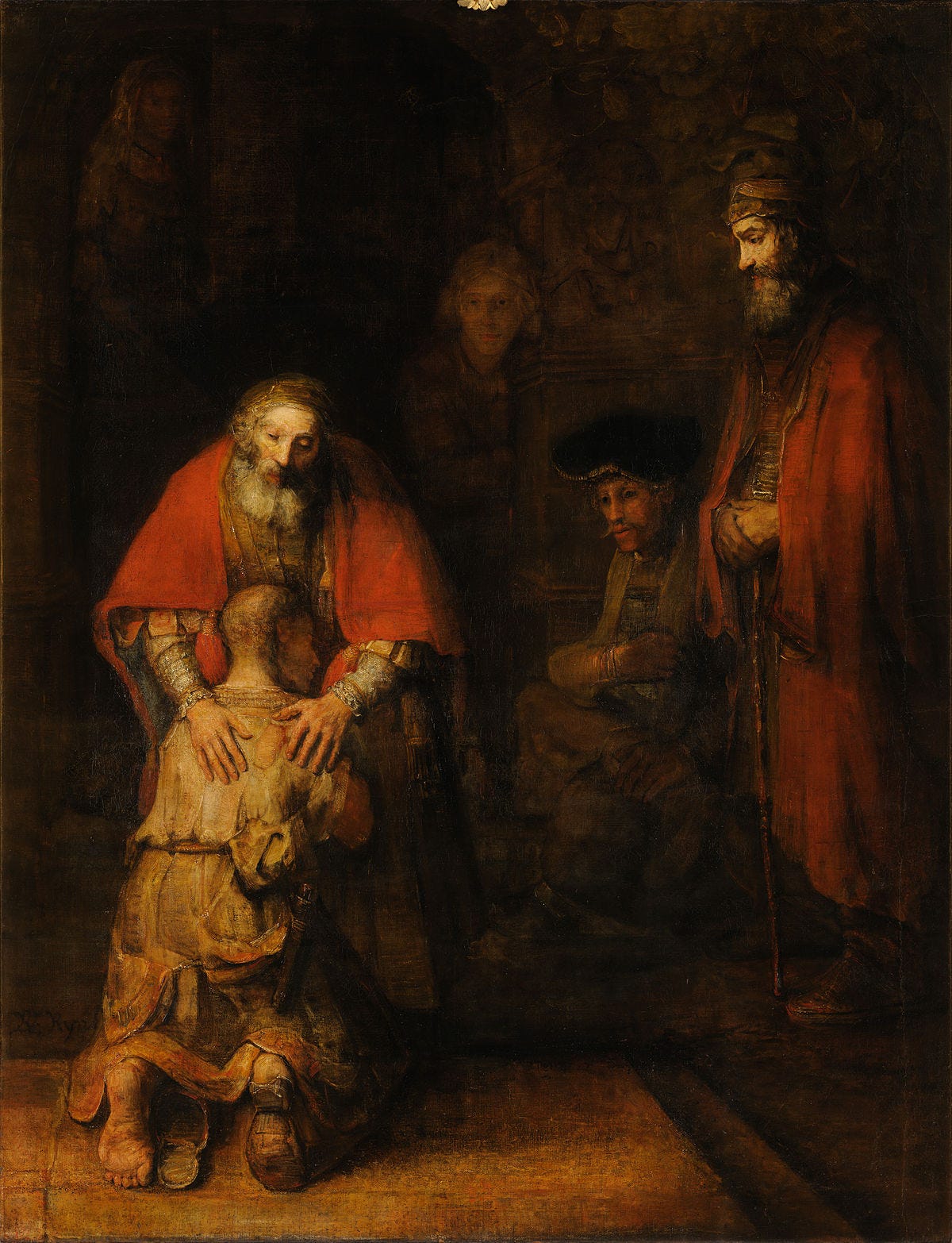Only the State Forgives
The political reason of redemption
Then his lord, after that he had called him, said unto him, O thou wicked servant, I forgave thee all that debt, because thou desiredst me: Shouldest not thou also have had compassion on thy fellowservant, even as I had pity on thee? And his lord was wroth, and delivered him to the tormentors, till he should pay all that was due unto him. So likewise shall my heavenly Father do also unto you, if ye from your hearts forgive not every one his brother their trespasses.
-Matthew 15: 32-35
The most extraordinary development in the history of politics in the West has been the secular modern State’s absorption of the role of the medieval pastorate, taking on for itself the authority to redeem, forgive, condemn, judge. This development has been so thorough, and so total, that most people do not even recognise that it has happened - let alone have an understanding of its implication. This implication, as we shall see, is that the Western State has taken on what can only be called a theological role for itself, for all that it might be officially secular or atheistic: it increasingly rationalises its own existence on the basis not of improving material conditions for the population - but rather redeeming their souls.
Let’s unpack that a little, beginning with a short story. On January 19th 2005, a fight between rival Romanian street gangs in London ended with a mob of around twenty young men pursuing a single victim, called Eugen Breahna, down a suburban street. Seeing an ambulance that was dealing with another matter, Breahna fled inside for refuge, but to no avail. He was pursued into the ambulance and there, in front of the crew, subjected to a merciless assault with baseball bats, iron bars, golf clubs and knives that left him dead.
Four men were convicted of murder in connection with Breahna’s death. One of them, a then-17-year old Ugandan national who for legal reasons I can only refer to as ‘ZM’ (though I will briefly come back to this), was sentenced to a minimum of 16 years in prison, and was in April 2020 served with a deportation order pursuant to section 32 (5) of the UK Borders Act 2007. This section specifies that foreign criminals (i.e. anyone not a British citizen who commits an offence and who has been imprisoned for 12 months or more) are to be automatically deported to wherever it is that they have nationality.
ZM, obviously, fit the bill for a deportation order on these terms. But, as anyone familiar with the UK’s immigration and asylum system will already have intuited, ZM, it turns out, is ultimately not going to be deported and will be allowed to remain in the country. The Upper Tribunal of the Immigration and Asylum Chamber (the appeals chamber for the First Tier Immigration and Asylum Chamber) has just decided that sending ZM back to Uganda would - you’ve guessed it - violate his human rights.
This is because, to cut to the chase, ZM has been diagnosed as having a severe psychiatric disorder, namely paranoid personality disorder, and in the view of a psychiatrist his deportation would cause a ‘precipitate and serious deterioration in his psychiatric state’ and may end in his suicide - not least because it would make it very difficult for him to settle back in Uganda where (everybody involved seems to have taken this for granted) mental illness is ‘stigmatised’ and he would be isolated and likely self-neglect. It would also result in a ‘traumatic’ separation from his mother, who lives in the UK. This would mean that his right not to be subject to inhuman or degrading treatment (Article 3 of the European Convention on Human Rights) and his right to respect for his private and family life (Article 8) would be violated by the deportation. So it cannot happen.
There is one relatively minor thing that I feel compelled say about all of this, before we get to the main topic of the post.
The minor issue: ZM was granted an anonymity order earlier in the proceedings and it would therefore be a contempt of court for anybody to identify him, punishable by a fine or up to two years in prison. Yet his distinctive surname is nonetheless printed prominently throughout the judgment of the Upper Tribunal, making it trivially easy to figure out who he is (especially when paired with a cursory study of the news stories pertaining to the original murder itself). This has nothing really to do with the subject of this post, but it is appalling and slovenly and suggests that the competence crisis, with which we are all now familiar, is spreading even into the inner workings of the judiciary. I raise this simply because I think it ought to be raised: this is a pretty shocking, and shoddy, oversight, whatever one thinks of the merits of the case itself.
Now, though, onto the more significant issue, which is the very strange political theology lying at the heart of cases like this (ZM’s, of course, being far from unique).
Keep reading with a 7-day free trial
Subscribe to News from Uncibal to keep reading this post and get 7 days of free access to the full post archives.


